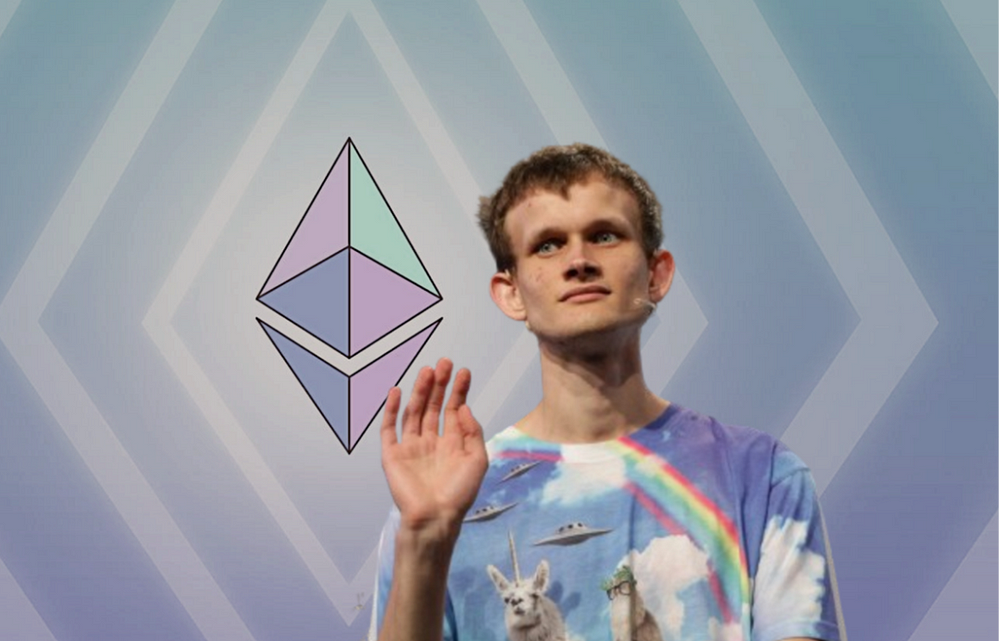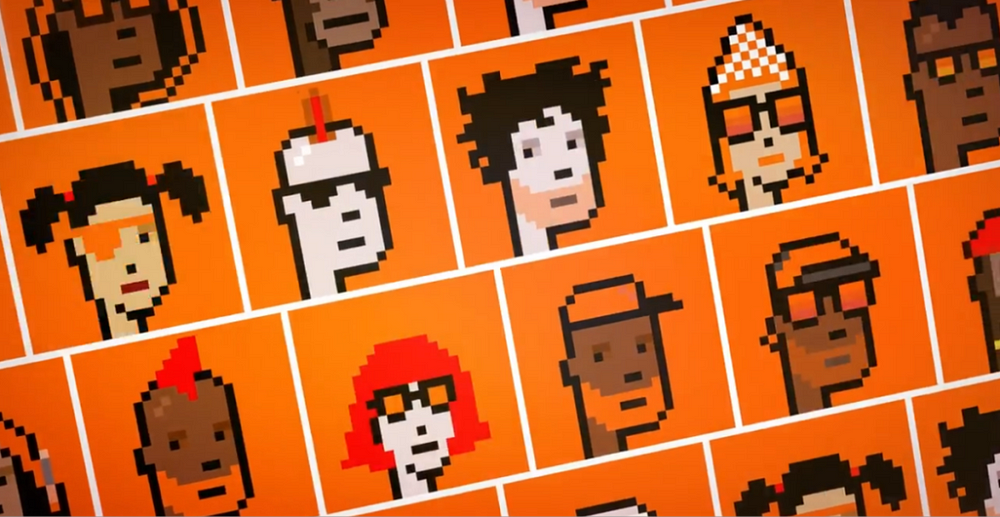Original link: https://mp.weixin.qq.com/s/lKmEqyA9LUl3MHt1vk0DPw
Can you briefly introduce yourself?
Hello, I am Hong Shuning, the author of China’s first Bitcoin research paper. I graduated from the Department of Computer Science at Tsinghua University and have worked for a long time at the Nanjing branch of the People’s Bank of China. In recent years, I have served as the Deputy Director of the Fintech Research Center of Suning Financial Research Institute, Dean of the Shanghai Jin Qiu Blockchain Research Institute, and a senior blockchain expert at CCB Fintech.

Can you share how you entered the cryptocurrency circle?
In 1992, after graduating from the Department of Computer Science at Tsinghua University, I have always worked in the IT and finance fields. I worked for the Nanjing branch of the People’s Bank of China for a full 20 years, during which I was involved in various fields, including payment clearing and credit management. In 2011, when I was working on payment clearing, I began a deep study of Bitcoin, reading its white paper and studying its source code. I realized that Bitcoin has the potential to change the future and was deeply influenced by it. As a result, I wrote a paper published in the “China Credit Card” magazine, introducing Bitcoin to people and making three suggestions: First, as an employee of the People’s Bank of China, I suggested that the People’s Bank of China use the country’s computing power to mine Bitcoin. Second, I recommended the establishment of a Bitcoin bank to combine Bitcoin with financial services, especially with fiat currency. It must be realized through a national Bitcoin bank. Third, I proposed a new type of legal currency with Bitcoin as a reserve to compete with traditional reserve currencies such as the US dollar.
At that time, Bitcoin was not widely known, and these suggestions were not taken seriously. But in recent years, I am pleased to see some countries, especially El Salvador, recognizing the importance of Bitcoin and incorporating it into the legal currency system. I believe that more countries and central banks will pay attention to these suggestions in the future.

In 2017, I left the People’s Bank of China and joined Suning Finance, fully devoting myself to blockchain research. I established Suning’s blockchain laboratory in Nanjing. Although I had no opportunity to work on Bitcoin-related tasks anymore, I focused on the alliance chain and application landing. Later, I also worked for some other IT companies, including serving as the dean of the Shanghai Jin Qiu Blockchain Research Institute and the financial technology company of China Construction Bank. I have always been committed to the application of the alliance chain and the research work of Bitcoin/blockchain Web 3.0.
Core content: In 2011, I began researching Bitcoin and wrote a paper proposing three suggestions: First, to use national computational power to mine Bitcoin; second, to establish a Bitcoin bank; and third, to have a legal currency backed by Bitcoin as a reserve. Although it wasn’t taken seriously at the time, in recent years some countries have started recognizing the importance of Bitcoin. In 2017, I left the People’s Bank of China to join Suning Finance, focusing on blockchain research. I established Suning’s Blockchain Lab, continuing to work on consortium chains and practical applications. Later, I also worked in other IT companies, persistently researching consortium chain applications and Blockchain Web 3.0.
Can you share about what you’re currently working on?
Having been engaged in blockchain and Bitcoin research for a long time and having participated in this field early on, I’ve also done a lot in promoting and educating about blockchain and Bitcoin. This includes writing articles, speaking domestically, and participating in policy and standard setting. I’ve also assisted some local governments in developing relevant plans and popular science activities.
After years of research and consortium chain building, I started to feel that consortium chains, or so-called private blockchains, have significant limitations. I believe that blockchain technology needs to return to the Bitcoin model based on game theory and economic incentives to fully realize its potential. Pure private blockchains don’t hold much significance in leveraging blockchain technology. Therefore, in the last two years, my research focus has shifted back to Bitcoin, exploring how Bitcoin can be applied more broadly beyond just being a currency, which has become my primary research direction.
Core content: I have long been engaged in blockchain and Bitcoin research, actively promoting and educating, and also participating in policy-making. Despite venturing into consortium chains, I believe blockchain should return to Bitcoin’s game theory and economic incentive model to unleash its potential. Private blockchains are limited, so recently, my research focus shifted back to Bitcoin, exploring its broader applications.
What’s your most significant experience in Web3?
In fact, I once tried some primary investments in Web3, but most of them ended in failure. I believe the most meaningful experience was about Ethereum’s ICO. At that time, I did a detailed study of Ethereum, but did not participate. Why not? Because I believed that Ethereum’s vision and the objectives proposed in its whitepaper could theoretically be realized on Bitcoin, just that the technical path was not yet found. Vitalik (founder of Ethereum) started Ethereum because he believed that Turing-complete smart contracts could not be realized on Bitcoin. However, I believed that, even though we didn’t know how to achieve it at the time, the technical capabilities of the Bitcoin community would soon find a way, making Ethereum’s emergence unnecessary. Hence, I didn’t participate in Ethereum’s ICO.

Of course, I missed out on an opportunity that could have brought a 1000-fold return, but looking back now, my judgment was still correct, just many years late. Now, Bitcoin has found the means to implement the smart contract functionality of Ethereum. This is also the direction I’m primarily committed to researching now.
Core content: The most significant experience was about Ethereum’s ICO, which I didn’t participate in. At the time, I believed Ethereum’s vision could be realized on Bitcoin, just that the technical path was unknown. Looking back now, my judgment was still correct, even though I missed a 1000-fold opportunity. I am currently dedicated to researching the direction of Bitcoin implementing Ethereum’s functionalities.
Can you share the skills or areas you are particularly good at?
I graduated from a computer major and have a technical background. I worked in the banking and finance sector for a long time before transitioning to the blockchain industry. My strength lies in possessing the knowledge required in the blockchain field, ranging from programming, cryptography, security, finance, currency to securities investment. This gives me a comprehensive understanding of the blockchain industry, especially Bitcoin and Ethereum. Compared to experts entering different fields, I excel in quickly determining the potential and prospects of a particular field or technology and then focusing on in-depth research while following its development. In summary, I believe my best skill is quickly identifying the direction of development in a field and persistently focusing on that direction.
Core content: I have a computer science background and long worked in banking and finance before switching to the blockchain sector. My advantage is extensive blockchain knowledge, including technology, security, finance, etc. Compared to other domain experts, I excel at swiftly assessing and deeply researching the potential and prospects of a field, tirelessly following the development direction.
How do you view investment, or are there any investment methods you can share?
In the investment field, I primarily entered from a theoretical research perspective and did not participate much in investments. I am a firm holder, continuously purchasing Bitcoin and never selling. Although I’m not adept at investing and trading, my advice for those like me who aren’t skilled at trading is not to try frequent trades based on their weaknesses. Instead, opt for long-term holding and stick to it once the right direction is found. I believe that once the correct direction is identified, one should hold on until the expected target is reached and then consider other trades.
Core content: I mainly focus on theoretical research and am not skilled at investing and trading. I am a staunch long-term holder, focusing on buying Bitcoin and never selling. My advice is that if you’re not adept at trading, don’t attempt it lightly; instead, choose to hold long-term, waiting until the expected target is reached before considering other trades.
Do you have anything proactive to share?
I would like to emphasize that I’ve been continuously pondering about the future perception and understanding of Bitcoin. Especially after the fork event of Bitcoin in 2017, the Bitcoin community became very conservative, viewing Bitcoin merely as a store of value and not suitable for applications. This led the entire community to abandon the application field, while Ethereum and other public chains began to develop rapidly. Before 2017, there were many beneficial application attempts on Bitcoin, but they were largely abandoned afterward. Ethereum’s growth proved that the economic incentive mechanism of tokens can lead to innovation. Despite some negative impacts, it also spurred a lot of beneficial innovations. Token-based Web 3.0 has become feasible and has achieved consensus. If the events that led to the conservativeness of the Bitcoin community hadn’t occurred, and if rapid application technology development had taken place on Bitcoin, the current Web 3.0 field might be entirely different. Therefore, in order to achieve our ideals or goals, we should continuously attempt application development on Bitcoin.
This attempt has been ongoing in the community, even if it stagnated for a while. Especially in 2022, with the emergence of engraving technology and other factors, the entire Bitcoin community underwent significant changes, becoming more proactive. People no longer remained as conservative as before, realizing the immense value of creating tokens on Bitcoin. As a result, many new projects emerged, including client-side validation technology.

Client-side validation technology isn’t new in theory and has existed for years, but it hasn’t been widely adopted, whether on Bitcoin or other public blockchains. Recently, due to the emergence of RGB and other projects, there’s increased attention to client-side validation technology. This tech makes it more feasible to execute smart contracts or issue assets on Bitcoin using off-chain computation. In fact, these projects are being developed, and it’s now evident that using Bitcoin to create smart contracts and token systems is entirely viable.
The next key step is to implement these technologies on a large scale, reimagining the various innovations from the early years of Web on Ethereum on Bitcoin. Due to the differences in technology, this will lead to new technical innovations, potentially bringing unexpected changes to the Web 3.0 ecosystem on Bitcoin. In my opinion, a full Web 3.0 ecosystem utilizing client-side verification technology will be established on Bitcoin, including the application scenarios we’ve already seen, and even some new ones. A critical difference of client-side verification technology is that it operates entirely off-chain, so it has potentially unlimited scalability. This means it is no longer constrained by blockchain performance limitations, similar to traditional Web 2.0, realizing the ideal vision for Web 3.0. This approach will help truly apply and implement external applications, rather than just for trading or simple investments.
Core content: Before 2017, there were beneficial application attempts on Bitcoin, and Ethereum’s success demonstrated the potential for innovation brought by the token incentive mechanism. If conservatism hadn’t prevailed at the time, the current Web 3.0 landscape might be different. In recent years, with the development of technology, the Bitcoin community has become more proactive, especially in 2022, with the emergence of new technologies and projects such as engraving technology and client-side verification technology, making application development on Bitcoin more feasible. The current focus is to apply these technologies on a large scale, reimagine the innovations on Ethereum, and build a complete Web 3.0 ecosystem on Bitcoin. The characteristic of client-side verification technology is its off-chain operation, with potentially unlimited scalability, free from blockchain performance limitations, propelling the realization of Web 3.0, not limited to just trading or simple investments.
Follow us
Twitter: https://twitter.com/WuBlockchain
Telegram: https://t.me/wublockchainenglish

